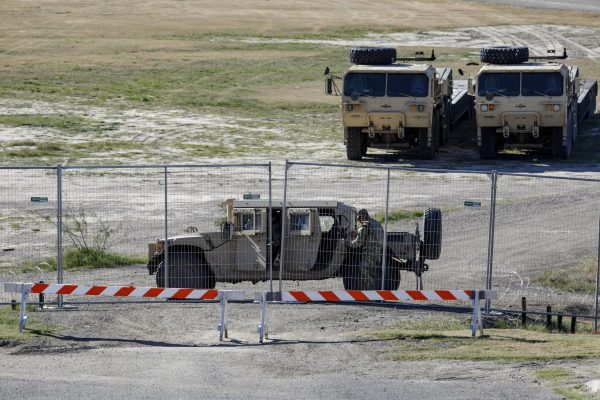Tarleton invites veterans to share their stories
November 8, 2013
Wednesday Oct. 6 was Tarleton State University’s annual Veterans Remembrance Program, where Tarleton invites veterans to talk about their war experiences and answer questions from a speaker and the audience. This year’s program centered on the veterans and their time in Operation: Iraqi Freedom. The speaker asked questions first and the three veterans, Master Sergeant Ron Curello, Sergeant First Class Christopher Watson, and Captain Ted Roberts, responded.
Speaker: How did you become a member of the armed forces?
Master Sergeant Ron Curello (RC): I had a friend, Kevin, who wanted a combat buddy, and so I responded and joined with him. He dropped out, but I continued to a career.
Sergeant First Class Christopher Watson (CW): I had actually just lost my part time job, and had no interest in the military at all, but I got a call asking if I wanted a part time job. I thought it was great so I said yes, because I didn’t even have to look for this one. When he showed up at my door thought I tried to shut the door in his face, but he stuck his foot in the door. He sat me down and talked to me about it, and here I am.
Captain Ted Roberts (TR): I was actually a Marine for five years and then went back to school. When the war broke out I tried to reenlist with the Marines as an officer, but they declined saying I was too old; so I went over to the Army and they accepted me, giving me an incredible squad.
Speaker: Sergeant First Class Christopher Watson, can you tell the audience about your experience in Bosnia?
CW: My experiences in Bosnia were great. The people that we dealt with actually wanted us there, and were very inviting. But it was a tough job – a serious job. During the Bosnian war there were over six million land mines put down all over that county. They’re not like the US though – when we put something out, we mark it, and we know where everything is so if we have to take it back out we can; they didn’t do that. This made everywhere you went very dangerous. The experiences I did have were great because of the people that we helped, and we helped to clean up a lot of their area. We also got to see the children start to go back to school, because they weren’t being shot at or having to worry about being shot at.
Speaker: Captain Roberts, can you tell us something about those five years in the Marine core?
CR: I joined in ’92, so there was no conflict. I was trained to be an intelligence specialist with a bunch of Navy guys. Then I was posted to a Marine core F-18 squadron, so I was the intel guy for them. I stayed with them for a year, and following that I went down to the first Marine division. I was only there for a short time before I went back up to an air station called NCAS El Toro. That’s where I finished up my time, and most of our time was spent tracking terrorist cells in the Pacific Rim.
Speaker: [To all] Would you please recount to the audience your experiences once you arrived in Iraq, or in each of your deployments?
RC: When I first arrived in Iraq as an infantry man, we trained, and we trained hard. Everything you see on TV and in the commercials, it’s not like that, there’s the other aspect of it. There’s that unknown aspect of the effect that we’re going to have on people, everyday civilians. Everything changes with that, and it’s not about winning; it’s about making a difference. I was up in the Anbar Province, where there weren’t a lot of IEDs (Improvised Explosive Device), but we did have a lot of RPGs (Rocket-Propelled Grenade), a lot of mines, and small arms fights that we dealt with on a daily basis. It was difficult, a very hard fight, but in the end we did see the difference.
CW: I got to Iraq at the end of it, and the main objective was to draw down smoothly. My job was route clearance, so that our vehicles could move about freely, and so we could get the equipment out easily. On top of that, [my duty was to] help the Iraqi people rebuild their infrastructure. The next nine months that I was there I was helping to clear routes, my job was not only to schedule route clearances, but also work with the intelligence community to study the IEDs. We did this so that we could target the individuals that were making these. It was a great experience every time we took one off the streets.
TR: I would like to take the time to talk about the men that I served with. I was incredibly fortunate to fall on an experienced platoon of veterans, and as a young second lieutenant that was a tall order to fill, but my platoon sergeant, I was incredibly lucky to have. We took casualties, but we didn’t have a young man killed, and that was thanks to my platoon sergeant. I was incredibly lucky to have them.




